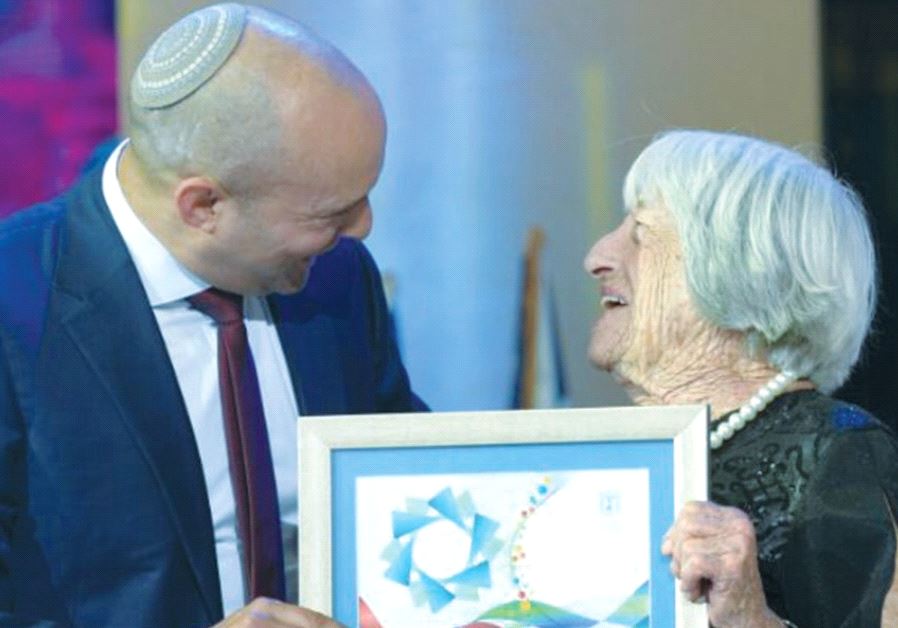‘Settlement Prize’ to be awarded 1st time in history of Israel Prize
A category has been added to the Israel Prize awarded annually on Independence Day.
 AGNES KELETI receives the Israel Prize from Education Minister Naftali Bennett in Jerusalem(photo credit: SHLOMI AMSALEM)Updated:
AGNES KELETI receives the Israel Prize from Education Minister Naftali Bennett in Jerusalem(photo credit: SHLOMI AMSALEM)Updated: